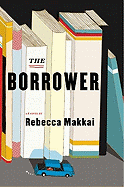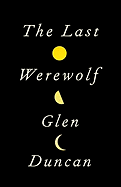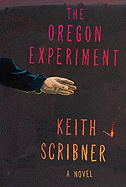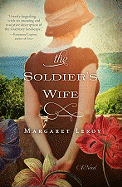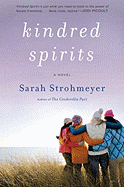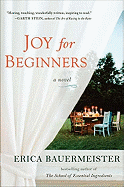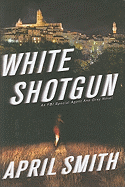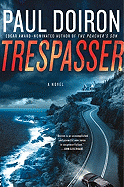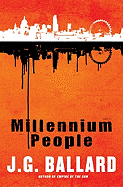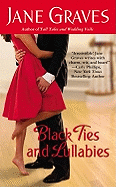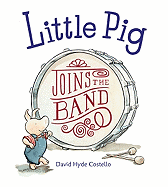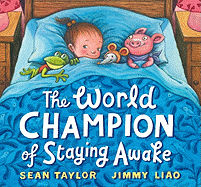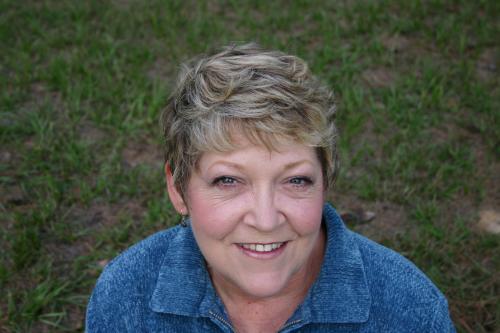 Jenny Wingfield and I had just gotten on the phone together when my two dogs began to bark at a passing squirrel. I started to apologize, but Wingfield was more interested in what kind of dogs they are. When I mentioned that they're rescue animals, she crowed with delight. "They make wonderful dogs!" she said. "I should know. I have 16."
Jenny Wingfield and I had just gotten on the phone together when my two dogs began to bark at a passing squirrel. I started to apologize, but Wingfield was more interested in what kind of dogs they are. When I mentioned that they're rescue animals, she crowed with delight. "They make wonderful dogs!" she said. "I should know. I have 16."
Wingfield lives on "more than a few" acres of land in Arkansas, the state where her debut novel, The Homecoming of Samuel Lake (Random House), is set. Although during her years as a celebrity profiler and Hollywood screenwriter (The Man in the Moon) she became familiar with other places, the Arkansas of her childhood is still rich territory for this "preacher's kid." "I based Samuel Lake on my father," Wingfield said. "But I'm not what you would call religious, and my book isn't a book about church. "
The Homecoming of Samuel Lake starts with the eponymous Sam's in-laws, the Moses family, who have a house with a general store at one end ("Moses'") and a neighborhood bar at the other ("Never Closes"). Sam; his wife, Willadee; and their children, Noble, Swan and Bienville, come to live with Papa John and Grandma Calla when Sam loses his church due to his eccentric pastoring style, which Wingfield based on her father's. "My daddy was a shepherd. He spent his time taking people to the doctor, getting them groceries, driving them places, things like that," Wingfield explained. "He treated everyone the same. My mama was just like Willadee. Her attitude towards people was always treat a person as if he were already what you wanted him to be."
However, Wingfield emphasized, her novel is not based on her life. "I basically peopled it with people I loved, as well as a few I can't abide, but it's fiction. My father did lose his church, but not until I was in high school. We never went to live with my grandparents. I took a lot of situations and scrunched them into one time period."
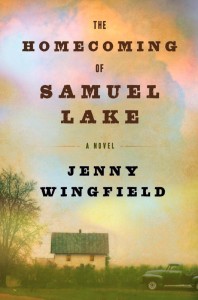 While the events in Homecoming may not be real, the names certainly are. "I knew a 'Ras,' " Wingfield said, referring to her story's villain. "I've known people with all of these names--Early, Nicey, Noble, Toy. Toy was quite a character, a real Cajun," she said with a chuckle. Wingfield said she always knew she wanted to be a writer. "All through high school, college, marriage, babies, I was always writing, whether it was a fashion column for the local paper or greeting cards. And I loved movies, so I knew I wanted to be a screenwriter eventually, but I didn't know how I was gonna break through."
While the events in Homecoming may not be real, the names certainly are. "I knew a 'Ras,' " Wingfield said, referring to her story's villain. "I've known people with all of these names--Early, Nicey, Noble, Toy. Toy was quite a character, a real Cajun," she said with a chuckle. Wingfield said she always knew she wanted to be a writer. "All through high school, college, marriage, babies, I was always writing, whether it was a fashion column for the local paper or greeting cards. And I loved movies, so I knew I wanted to be a screenwriter eventually, but I didn't know how I was gonna break through."
Wingfield decided that her way into screenwriting would be through meeting and writing about celebrities, and so she looked up the two who lived closest to her sister in Dallas: Glenn Campbell and Sandee Duncan. "Well, I didn't like Mr. Campbell because he'd just took Mac Davis's wife, so I decided on Sandee Duncan," she recalled. Through a combination of telephone information and shoe leather, she managed to land an interview with Duncan and got it published "on spec." "Then I had tearsheets," Wingfield said. "Whenever someone famous was in town I would get there, do an interview and pitch it. "
"After a few years, I met a woman, Shari Rose, who started bringing me scripts and I learned what to look for. I wrote one and got William Morris as my agency, but I couldn't sell it. Shari got frustrated, handed me a ream of typing paper, rented me a typewriter, and said, 'DO BETTER.' So I sat down and wrote The Man in the Moon in two weeks. It just poured out of me. Even though it took four years to get it made, it sold immediately."
The same thing happened when she decided to try writing a novel: "It was never rough. It was like dancing! Gahhhhd, it was fun. But it didn't start out as a novel, it started out as a play for the stage, in the early 1990s. I wanted to create a set that would be really compact, and I came up with the idea of a house that had a legitimate business on one side and a speakeasy on the other. I love juxtaposition. But when I started to write it, instead of two warring men in these businesses, I had a pair of grandparents. So what do I do?"
What Wingfield did was to move her own family in at a point in time where Swan, the girl in the family, would have been about 11 years old. "I wrote probably 100 pages and it was great fun, but then I had deadlines forever. I was a single mom, then I had cancer, then I didn't make a living for a while, then I had to get a job and pay all the money back to the bank... the book just sat there."
Finally, friends urged her to finish--and she did so in three months. "I would get up about dawn and work until what my mother would call 'a stopping place' and get some food, then write again until about eight at night."
Wingfield's agent was still worried that people would think the book was too religious but, the author said, "I think what throws people off is the word 'God,' but in my writing, it's only there when it's showing what a person is and what they do. My father happened to be a preacher, but if he'd been a schoolteacher or a trucker, his thoughts would've turned a different way."
"My father loved helping people. I had two great friends at home when I was little, one of them was really, really poor. I went back a few years ago and was walking through the mall when the women behind the sno-cone stand recognized me--it was that friend who had grown up so poor. We went and talked and talked for hours, and she told me how she had had an abscessed tooth that needed pulling, and my father just picked her up, took her to the dentist, paid for it, and brought her home. He never told me or anyone else about it. "
"It's not about religion. It's about taking care of people." --Bethanne Patrick
author photo by Lori Harwell
Portrait of the Artist: Jenny Wingfield
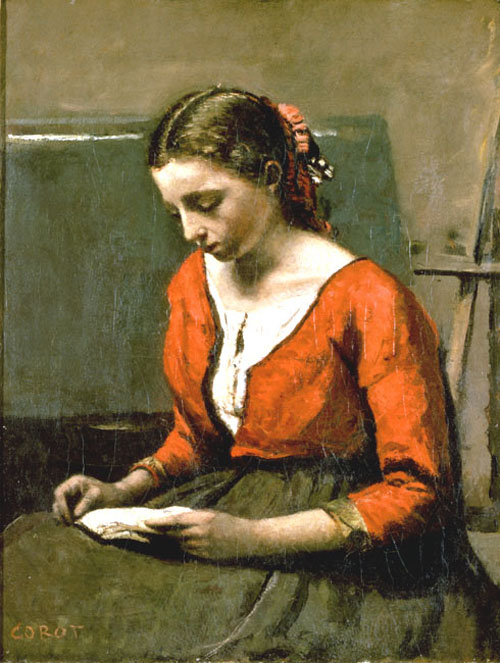 However, the slower pace of reading is also one of the reasons we love to pick up books. While turning pages of a memoir or a great thriller, we are in control of how long we linger over a chapter, scene or sentence. Those of us who try to capture what's best about books to share with other readers, whether we're Oprah or the newest book blogger, have to balance our own natural reading pace with being able to say something meaningful about any particular title.
However, the slower pace of reading is also one of the reasons we love to pick up books. While turning pages of a memoir or a great thriller, we are in control of how long we linger over a chapter, scene or sentence. Those of us who try to capture what's best about books to share with other readers, whether we're Oprah or the newest book blogger, have to balance our own natural reading pace with being able to say something meaningful about any particular title.


 Jenny Wingfield and I had just gotten on the phone together when my two dogs began to bark at a passing squirrel. I started to apologize, but Wingfield was more interested in what kind of dogs they are. When I mentioned that they're rescue animals, she crowed with delight. "They make wonderful dogs!" she said. "I should know. I have 16."
Jenny Wingfield and I had just gotten on the phone together when my two dogs began to bark at a passing squirrel. I started to apologize, but Wingfield was more interested in what kind of dogs they are. When I mentioned that they're rescue animals, she crowed with delight. "They make wonderful dogs!" she said. "I should know. I have 16." While the events in Homecoming may not be real, the names certainly are. "I knew a 'Ras,' " Wingfield said, referring to her story's villain. "I've known people with all of these names--Early, Nicey, Noble, Toy. Toy was quite a character, a real Cajun," she said with a chuckle. Wingfield said she always knew she wanted to be a writer. "All through high school, college, marriage, babies, I was always writing, whether it was a fashion column for the local paper or greeting cards. And I loved movies, so I knew I wanted to be a screenwriter eventually, but I didn't know how I was gonna break through."
While the events in Homecoming may not be real, the names certainly are. "I knew a 'Ras,' " Wingfield said, referring to her story's villain. "I've known people with all of these names--Early, Nicey, Noble, Toy. Toy was quite a character, a real Cajun," she said with a chuckle. Wingfield said she always knew she wanted to be a writer. "All through high school, college, marriage, babies, I was always writing, whether it was a fashion column for the local paper or greeting cards. And I loved movies, so I knew I wanted to be a screenwriter eventually, but I didn't know how I was gonna break through."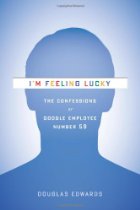 One of this month's most intriguing titles has to be I'm Feeling Lucky: The Confessions of Google Employee Number 59 by Douglas Edwards (Houghton Mifflin Harcourt), in which the company's former director of marketing and brand management gives his view of the tech giant. Said Edwards: "I'm Feeling Lucky is really aimed at those who are interested both in what Google did to ensure success during its formative years and how it felt to be an ill-prepared participant dropped into the heart of an exploding startup."
One of this month's most intriguing titles has to be I'm Feeling Lucky: The Confessions of Google Employee Number 59 by Douglas Edwards (Houghton Mifflin Harcourt), in which the company's former director of marketing and brand management gives his view of the tech giant. Said Edwards: "I'm Feeling Lucky is really aimed at those who are interested both in what Google did to ensure success during its formative years and how it felt to be an ill-prepared participant dropped into the heart of an exploding startup."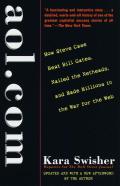 Another insider-view of tech: Try journalist Kara Swisher's first AOL book, AOL.com. Swisher followed the media giant for the Washington Post from 1994 on, and her careful history of its rise was one of the first of its tech-company kind.
Another insider-view of tech: Try journalist Kara Swisher's first AOL book, AOL.com. Swisher followed the media giant for the Washington Post from 1994 on, and her careful history of its rise was one of the first of its tech-company kind.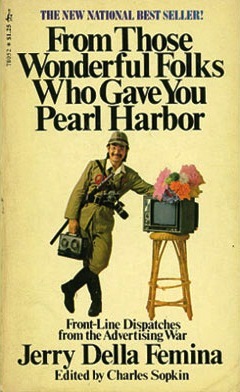 To read a modern classic: Jerry della Femina's From Those Wonderful Folks Who Gave You Pearl Harbor: Front-Line Dispatches from the Advertising Wars. Learn about an era in which advertising wars were as exciting as today's e-commerce struggles.
To read a modern classic: Jerry della Femina's From Those Wonderful Folks Who Gave You Pearl Harbor: Front-Line Dispatches from the Advertising Wars. Learn about an era in which advertising wars were as exciting as today's e-commerce struggles. To hear the boss speak: Read Tony Hsieh's Delivering Happiness: A Path to Profits, Passion, and Purpose. The Zappos.com CEO has a decidedly different take on corporate culture, believing that employee morale is key to corporate success.
To hear the boss speak: Read Tony Hsieh's Delivering Happiness: A Path to Profits, Passion, and Purpose. The Zappos.com CEO has a decidedly different take on corporate culture, believing that employee morale is key to corporate success.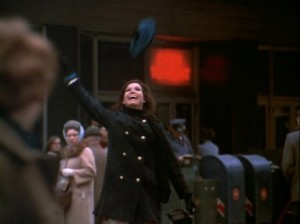 Many authors are ambivalent about the bumptious world of Twitter. But not bestselling novelist
Many authors are ambivalent about the bumptious world of Twitter. But not bestselling novelist 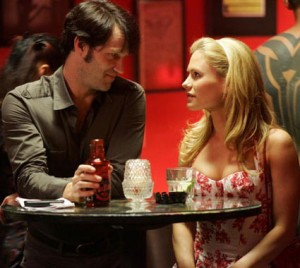 True Blood's "fangbuyer" fans have turned the HBO series--based on the novels by Charlaine Harris--into a merchandise hit as well.
True Blood's "fangbuyer" fans have turned the HBO series--based on the novels by Charlaine Harris--into a merchandise hit as well. 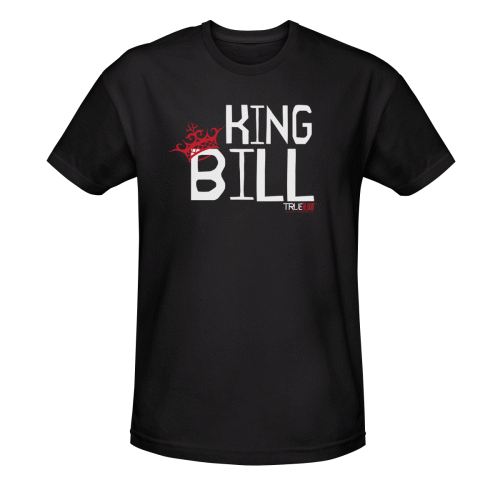 HBO is branching out beyond its website this summer with several new items: "Six different versions of True Blood V-Moda headphones will hit stores, priced from $39.99 to $199.99. Both Sephora and Ultima stores will carry upmarket cosmetics line Tarte's new True Blood-branded cheek stain, lip liner and an eye shadow palate that comes in a specially designed box, with prices ranging from $24 to $52. And high-end handbag purveyor Hammitt will feature a new line of True Blood bags named after five of the show's characters. Prices for the bags, available only at select retailers, will land between $395 and $675," Variety wrote.
HBO is branching out beyond its website this summer with several new items: "Six different versions of True Blood V-Moda headphones will hit stores, priced from $39.99 to $199.99. Both Sephora and Ultima stores will carry upmarket cosmetics line Tarte's new True Blood-branded cheek stain, lip liner and an eye shadow palate that comes in a specially designed box, with prices ranging from $24 to $52. And high-end handbag purveyor Hammitt will feature a new line of True Blood bags named after five of the show's characters. Prices for the bags, available only at select retailers, will land between $395 and $675," Variety wrote.